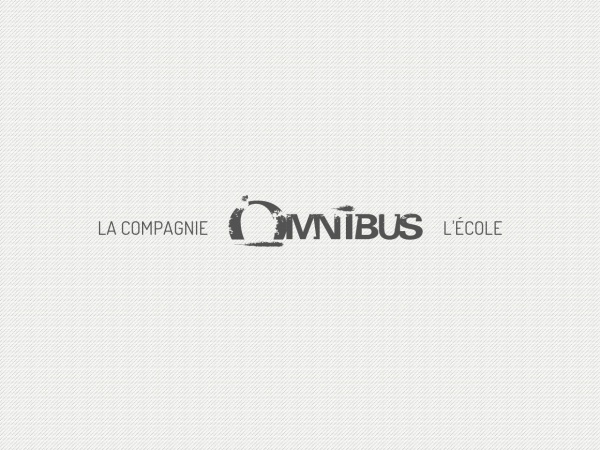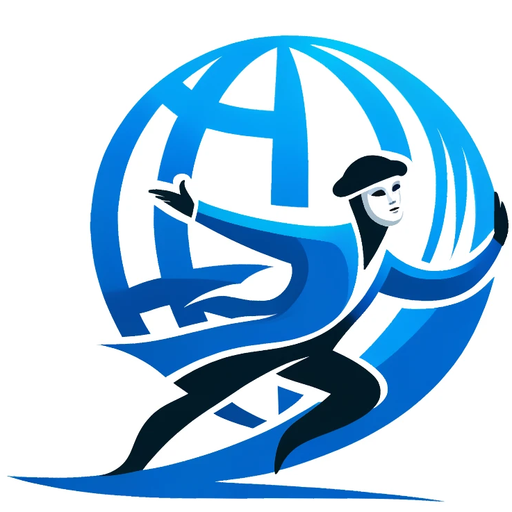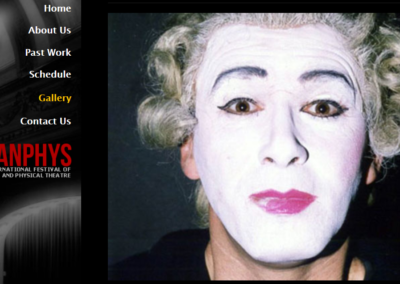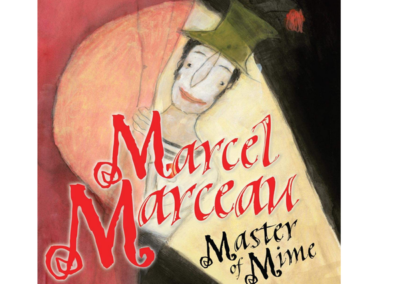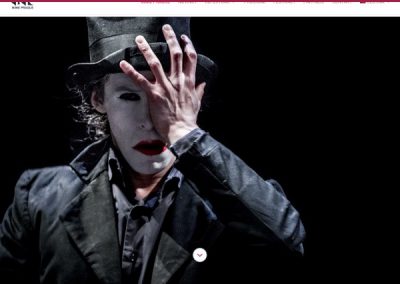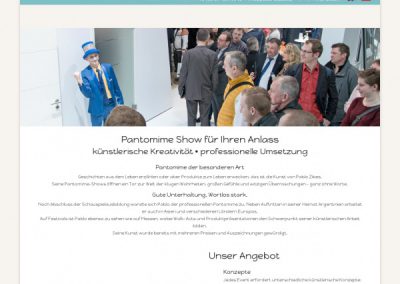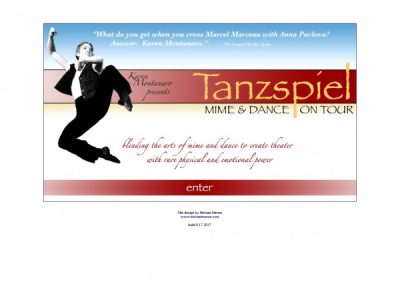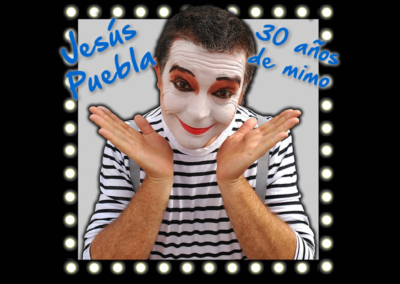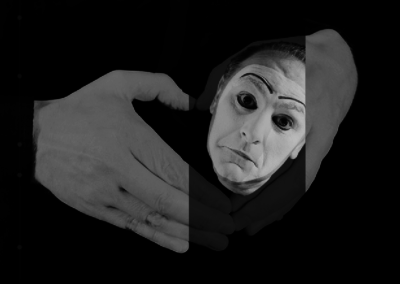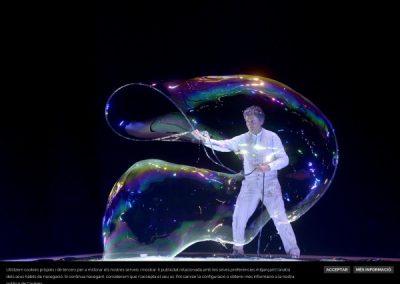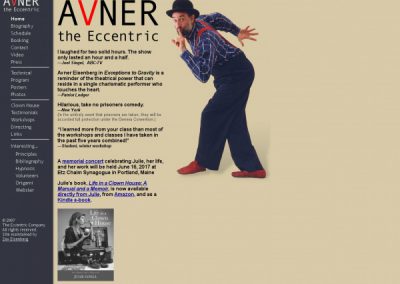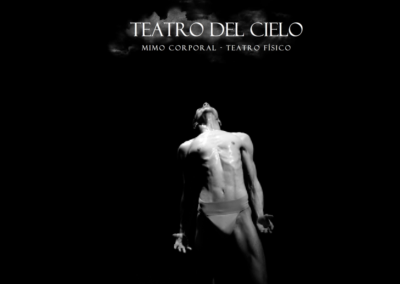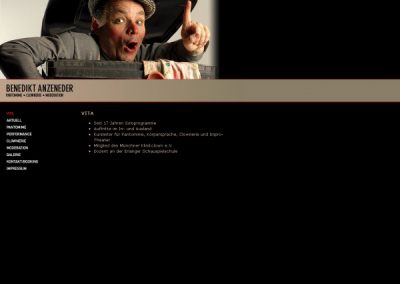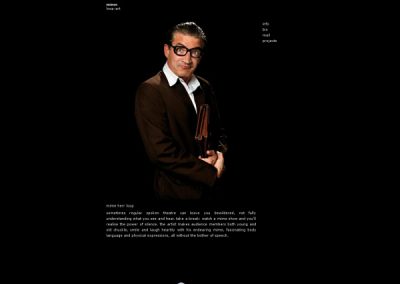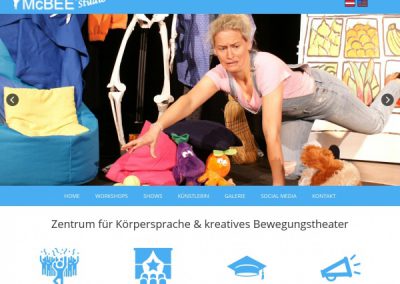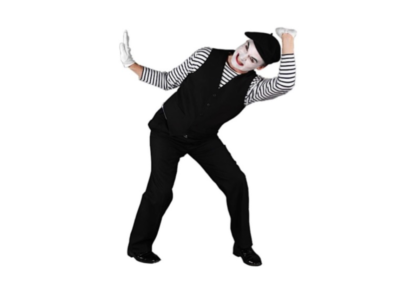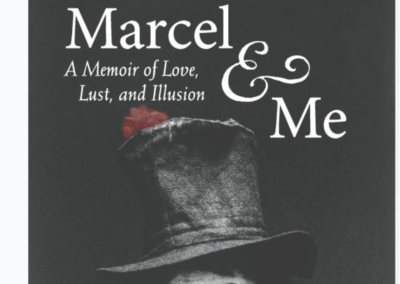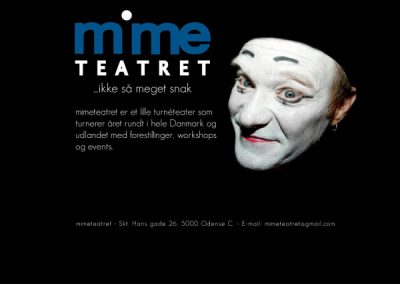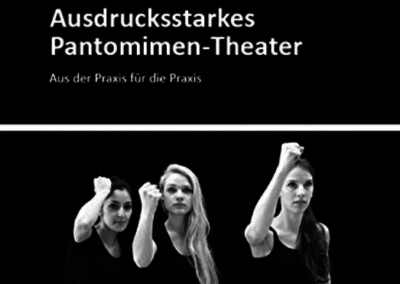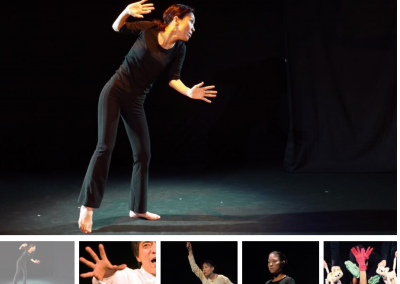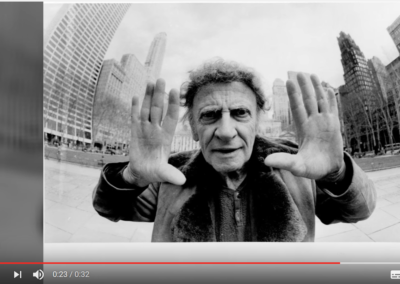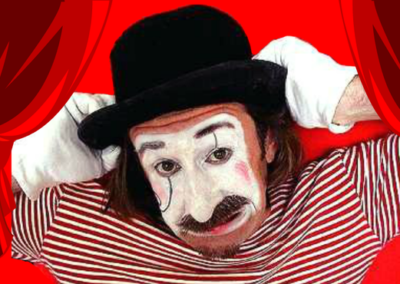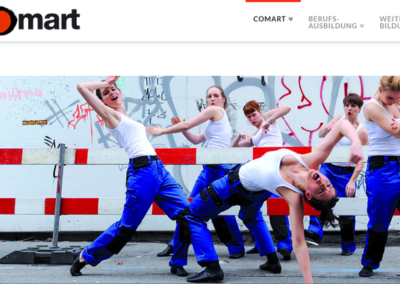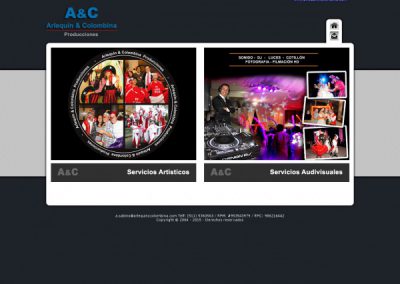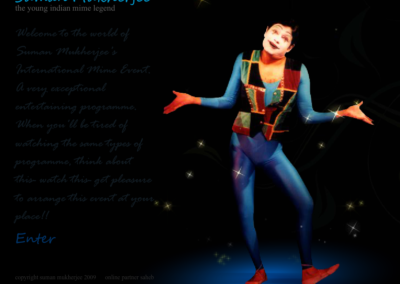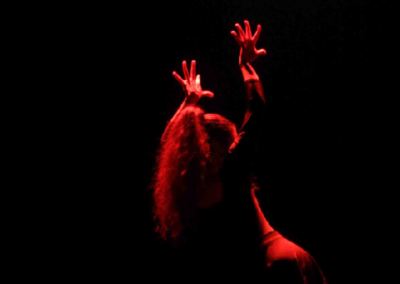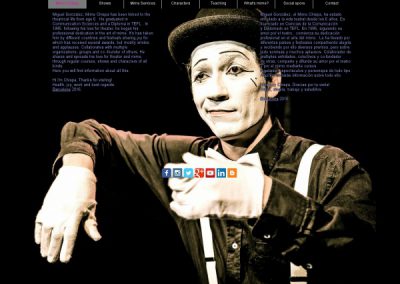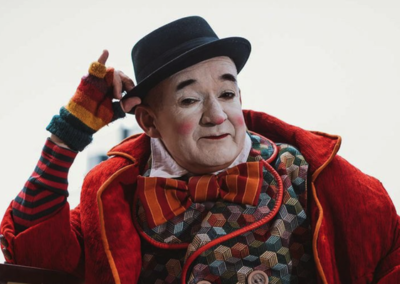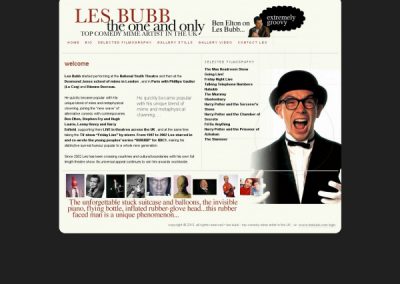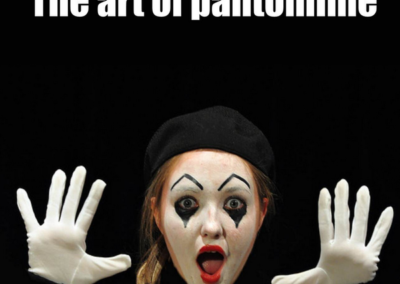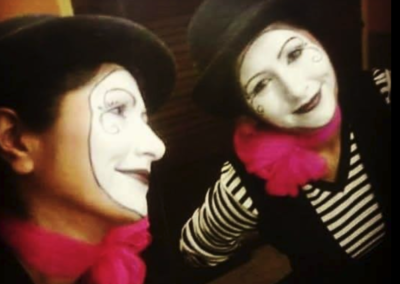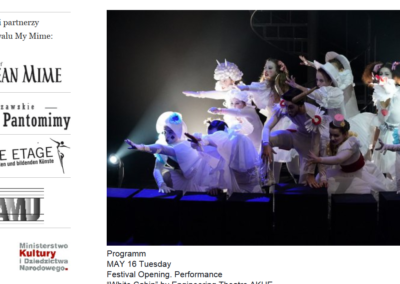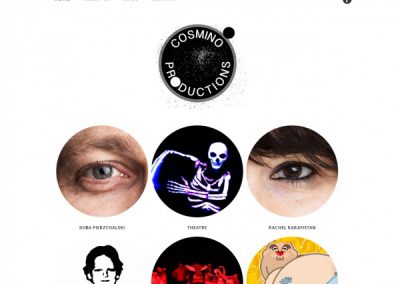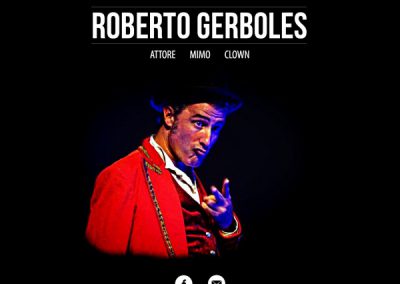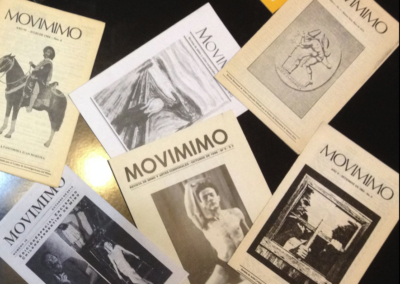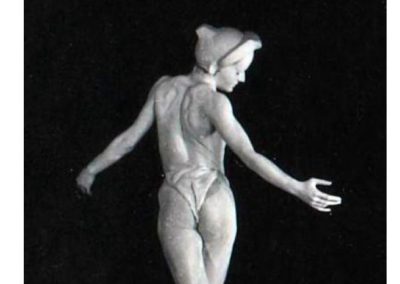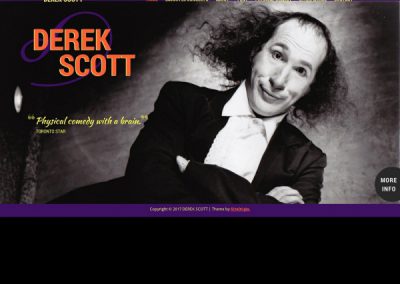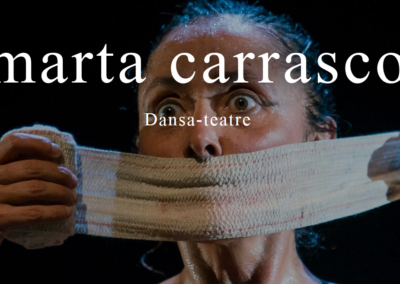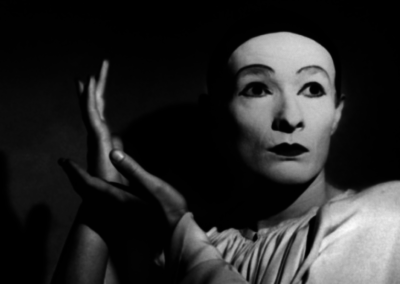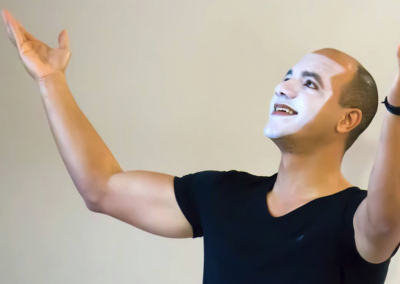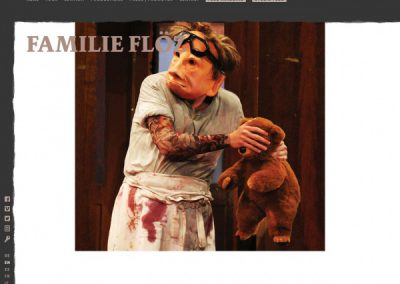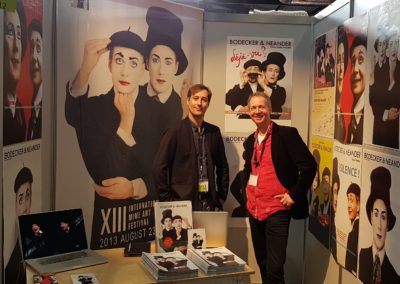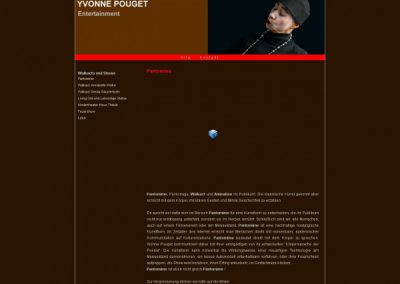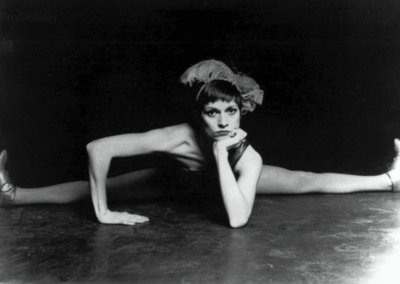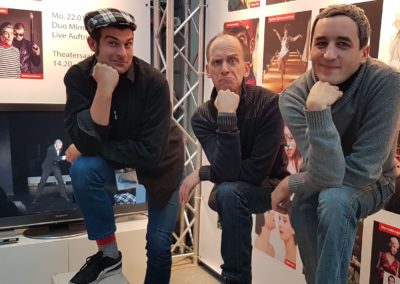Ecole Omnibus Montreal
Mime School
Physical Theater
It is the actor, its acting prior to speech. The actor is the raw material, the indissociable property of theatre, as distinct from its accidental/incidental complement, literature. By learning the axioms of the body and experimenting harmony and virtuosity, mimes perform as they would and not just as they could. From the very inception of a true language of the body, one with a potential for refinement close to that of human voice, actors can no longer justifiably behave in a trivial manner. The artist of the body is conscious of what he does when he chooses to transgress speech in favor of silence. He thus nurtures infinite portraits of reality through his manner of being and behaving. Drawing on the company extensive production history, the École Omnibus approach focuses on the physical elements of acting, free of aesthetic distractions. The body of the actor is propelled first and foremost by his thoughts.
The School
For more than four decades, de l’art du corps au corps du théâtre (“from the art of the body to a body of theatre”), Omnibus has been providing theatre education that emphasizes and celebrates the appropriation of the self and the imagination. Through an innovative curriculum rooted in objective theory and disciplined training, students are introduced to a wide range of aesthetic possibilities. Professional and amateur mimes, puppeteers, actors, dancers, circus artists, singers, and variety performers join together with practitioners, teachers and theoreticians to study a productive artistic language that rigorously excludes anything not directly related to the performer on stage.
Omnibus (founded in 1970) and its creative incubator, the École Omnibus (1977), are inseparable: the same artists are involved in both organizations, and their mutual study of issues of style and content shapes the school’s curriculum and inspires the company’s dramatic writing. Through their research, teachers and artists expand contemporary dramaturgy to embrace experimentation in myriad forms, from the pure (mime) to
the impure (little-known works of the theatre repertoire) by way of hybrid productions that incorporate other artistic disciplines. The result is an eclectic form that combines movement and speech within a radical aesthetic language.
Course objectives and content
A – PHYSICAL THEATER
Open to beginner and advanced participants.
Introduction to physical acting in theatre practice and performance.
TECHNIQUE – Participants are introduced to the Decrouxian* mime style, a definitive gestural grammar. They learn to integrate the fundamental principles of physical theatre, awareness, and movement into a unified form of dramatic expression, and to develop their own personal performance style: Body articulation – The theatrical phrasing of movement – Planes, lines and areas in space – Causality – Walks and displacements in space – Study of counterweights – Figures of style: dynamics of structure and rhythm – The aesthetics of courtesy.
IMPROVISATION – Through solo, duet and ensemble improvisation work, participants apply the theories and techniques they have learned. They harness and develop their ideas and intuition through listening, awareness and critical observation: The imaginary body: presence, neutrality and abstraction – Study of different performance styles – The impact of space on physical vocabulary and expression – The relationship between movement and time (real and dramatic) – Transposition: from natural to theatrical movement, from performer to character.
B – PHYSICAL THEATRE
Prerequisite: Participants must have studied at the École or have previous performing arts experience. Please contact the school administration to confirm your eligibility.
This course covers the same material as Physical Theatre A, but more quickly and in greater depth.
C – CREATIVE DEVELOPMENT WORKSHOP
Open to beginner and advanced participants.
TECHNIQUE – Same as Physical Theatre A and B.
CREATION – Working together to develop a short performance piece, participants experiment with different forms and techniques of physical expression. The workshop structure encourages participants to use their imagination and develop their awareness. The participants/ actors perfect their performance technique and explore the implications of different artistic choices : Transposition: from natural to theatrical movement, from performer to character – Physical performance – The dramatic arc of a play – The theatrical phrasing of movement.
At the end of the course, participants perform their collective creation for École faculty and fellow students.
D – PHYSICAL THEATER
Open to beginner and advanced participants.
This course covers the same material as Physical Theatre A. It is adapted as well for the more experimented students, allowing them an optimal learning.
E – THE CORPOREAL ACTOR
This course is intended for artists who have previous training in theatre, dance or circus arts, or who are professional performers. These directed workshops focus on the theoretical and practical explorations of the participants.
Developing a Character (Sessions 1 and 3)
From the real to the abstract, the principles and practice of physical theatre are used to develop characters and performance styles. Subjective impressions and states of mind provide the inspiration for a dramaturgy without words.
Physicality and Language (Sessions 2 and 4)
Consistent interaction, integration or juxtaposition of the corporeal score and spoken or written text; telling in words vs. telling in movement. Exploring the extraordinary and the unconventional.
F – PHYSICAL THEATRE AND THE ELOQUENCE OF THE BODY
Four weekend seminars of 10 hours each.
Conducted by Jean Asselin, these intensive sessions are intended for artists interested in various elements of stagecraft: staging, choreography, scriptwriting, screenwriting, project management, directing. They require a proactive commitment, both physical and intellectual. From the art of the body to a body of theatre, the instructional approach is based on the actor’s primary role in creating a performance or dramatic work and investing it with meaning. Reflecting the universality of the language of movement, each seminar examines a different aspect of corporeal culture :
1- The Theatrical Repertoire
2 – Adaptations, Translations and Palimpsests
3 – Contemporary Creative Currents
4 – Crossovers and Hybrids.
